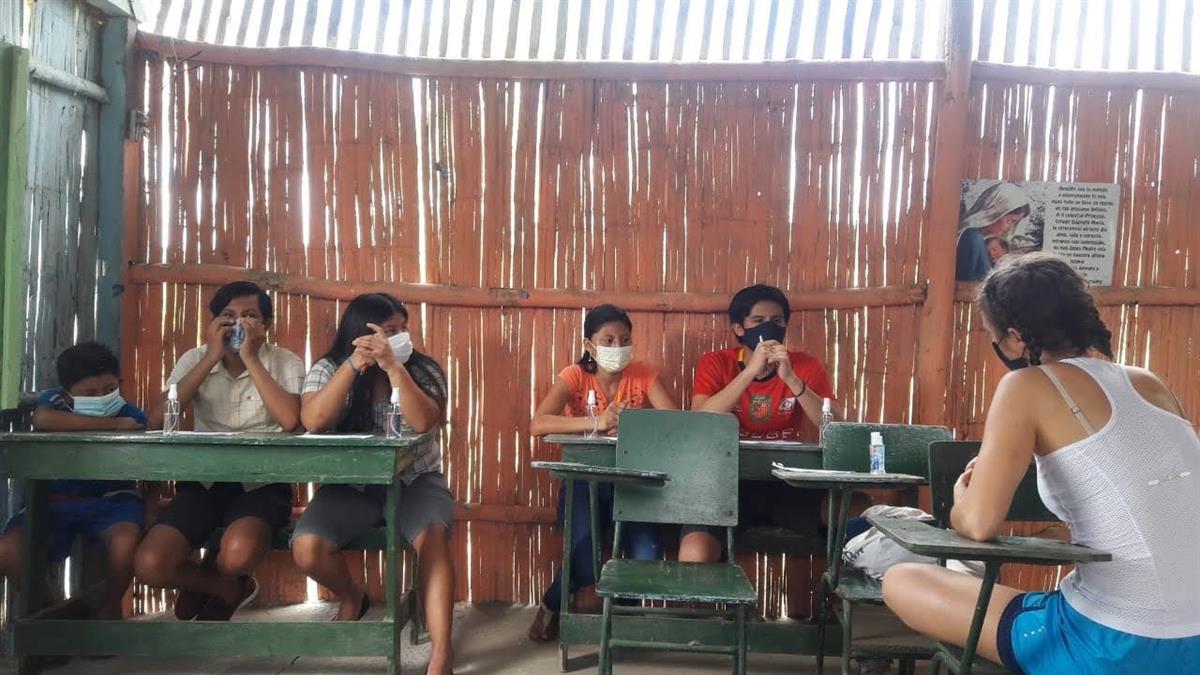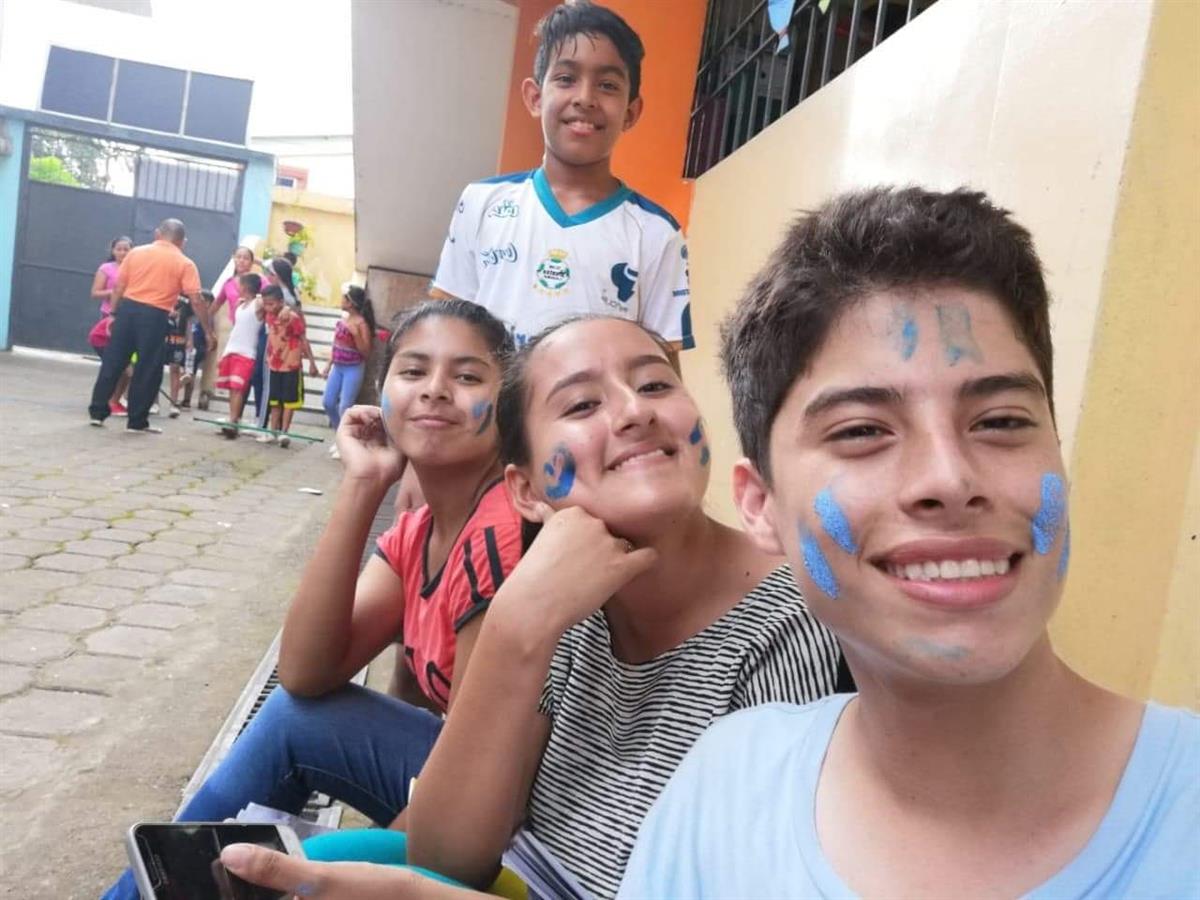In Ecuador, in the province of Manabí, the Distance Support project is carried out in rural areas where it's more difficult for children and teenagers to have a stable education.
Their access to education is hindered by the fact they live in remote areas: students must often walk long stretches of road to get to schools and colleges. They have limited access to technological services, yet at the same time education is seen as an activity in which both parents and children should participate.
In this context, AVSI and its partner CUET (Corporación Universitaria de Estudio y Trabajo) promotes literacy for parents and children, in order to foster their well-being and empowerment.

The project provides the necessary material and intellectual resources to the students, encouraging them to continue studying and strengthening their knowledge.
Along with this, school supplies are also delivered, while craft and orientation workshops are organized to allow young people to expand their knowledge, strengthen their self-confidence and learn to build positive and respectful social relationships.
In addition, their families can participate in training courses on handicrafts and entrepeneurship, to improve the economic and social structures of these communities, which is one of the long-term goals of the project.
In Manabí, as a matter of fact, most of the families must rely on several sources of income due to the changing climate: the main activities carried out are family gardens and the preparation of food such as desserts or empanadas.
To understand more about the situation in which the students live, surveys were carried out, targeting some of the beneficiaries of the Distance Support project to evaluate their future aspirations.
Most of them agreed that after high school they would like to go to university and have a stable job, or even start their own company. Although, to achieve these goals, most of the young people surveyed believe that they will have to leave their hometown to do so as they think they will have better opportunities, both on an educational and work level, in more populated areas.
However, living in bigger cities could also entail many more risks.

The surveys proved that young people in these rural communities have understood the fundamental value of education: the Distance Support project helps them stay in school, protects their well-being and increases their self-confidence, while it also contributes to reducing the factors that lead to poverty, through multi-sector support for their families.
Nowadays, more than 400 kids (15 to 18 years old) are included in the project, and 278 families from 40 communities are benefiting from it.
In Manabí, the project is implemented in the rural areas of Manga del Cura (El Carmen town) and Julcuy (Jipijapa town).
Edited by Coralía Proaño.